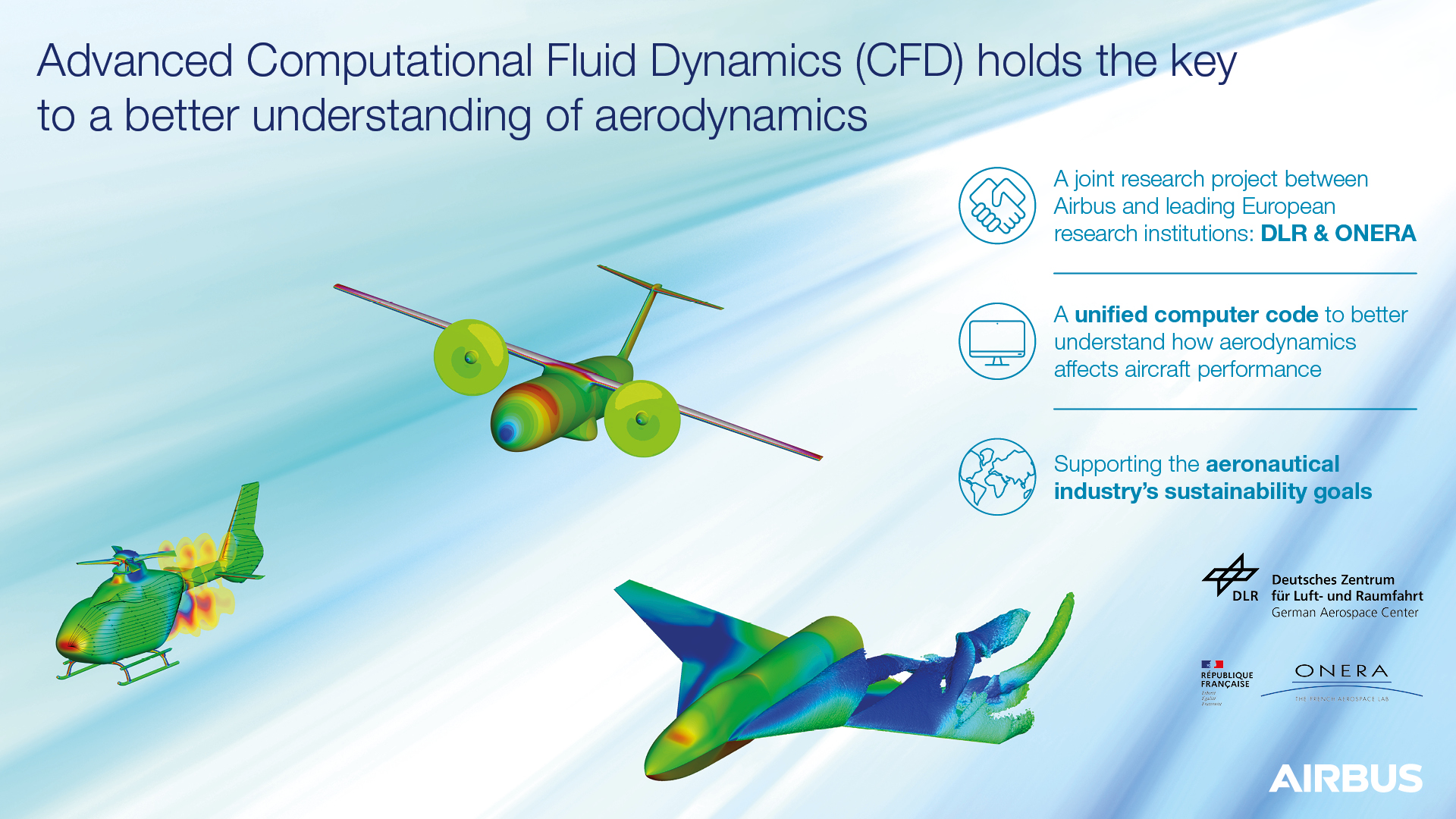

Market Trends
A collaborative ecosystem to explore the future of aerodynamics
As a pivotal player in the quest to decarbonize aviation, Airbus continuously innovates through incremental steps and technological breakthroughs. An especially important component of this mission comes with the art of aircraft design – critically, the key role aerodynamics plays in aircraft efficiency. To better understand and optimize the contribution of aerodynamics, Airbus has renewed and strengthened its partnership with two leading European research institutions, DLR (Deutsches Zentrum für Luft- und Raumfahrt - the German Aerospace Center) and ONERA (Office National d'Etudes et de Recherches Aérospatiales - the French Aerospace Lab).
The research studies rely on high-performance computing which allows advanced Computational Fluid Dynamics, or CFD. Advanced CFD is used to better model and simulate air flow around complex shapes and helps aircraft design engineers maximize lift and minimize drag, thus optimizing the overall aerodynamics of the aircraft.
While DLR and ONERA are longstanding Airbus partners, the three entities have historically worked on separate computer codes, the foundations on which CFD is built. The renewed agreement signed in late 2022 reinforces this collaboration around a unified computer code that will be extended to current and future Airbus projects such as ZEROe, EcoPulse and open fan research.
In fact, the methodology is already being used to mature test cases previously thought unfeasible because of limited physical representation and computational capacity. Soon, those cases could influence propulsion, engine integration and wing technology choices that will establish the blueprints for a new generation of fuel-efficient aircraft.
With this renewed partnership, Airbus has access to some of the highest-performing, extreme-scale computational systems in the world to help develop and validate the code, helping boost engineers’ confidence in their predictions and support the aeronautical industry’s sustainability goals.
And according to Pascal Larrieu, Airbus Computational Simulation Expert and the company’s lead for developing the new flow solver: “This project opens doors to a diverse, dynamic and Europe-wide research network. We’re convinced our work will help attract future aeronautics engineers to join us in meeting our decarbonization ambition together.”
For more information contact:
Damien Sternchuss
HO Airline Marketing Latin America & Caribbean
damien.sternchuss@airbus.com
